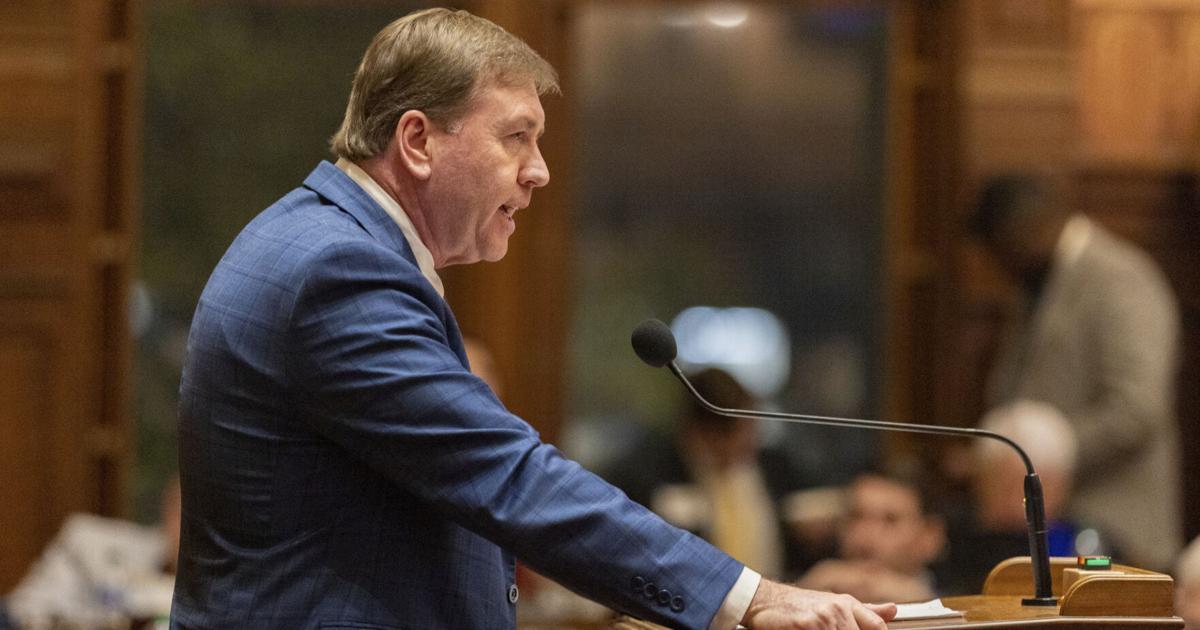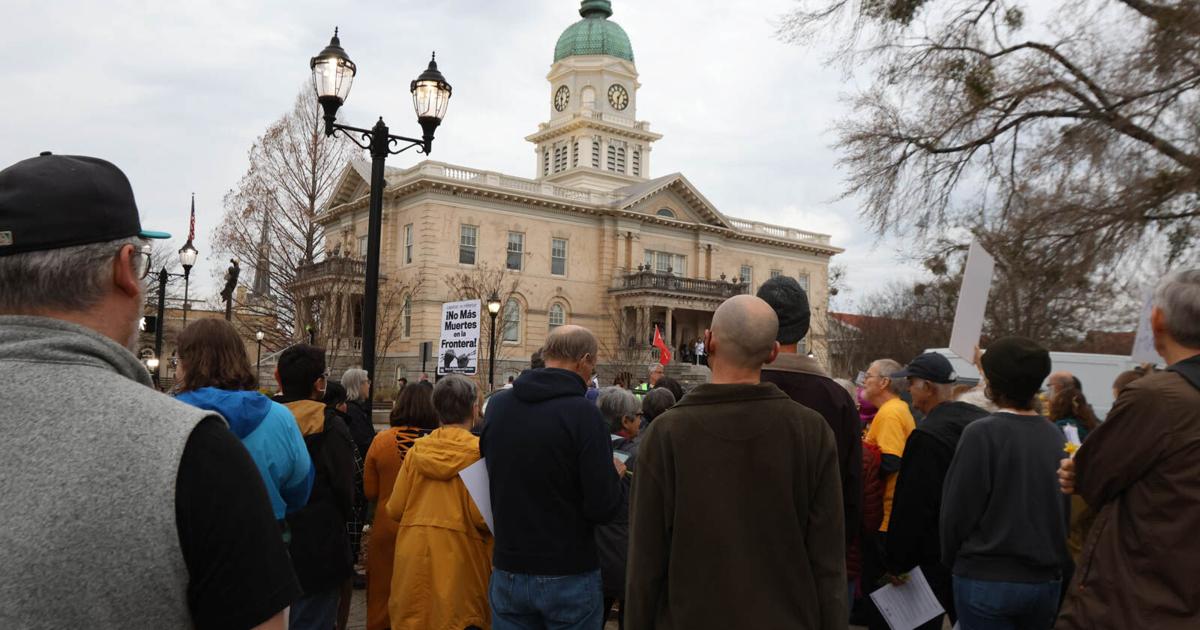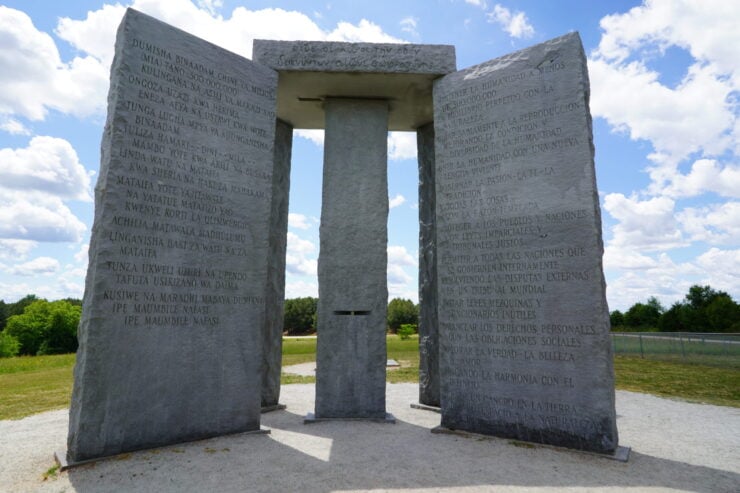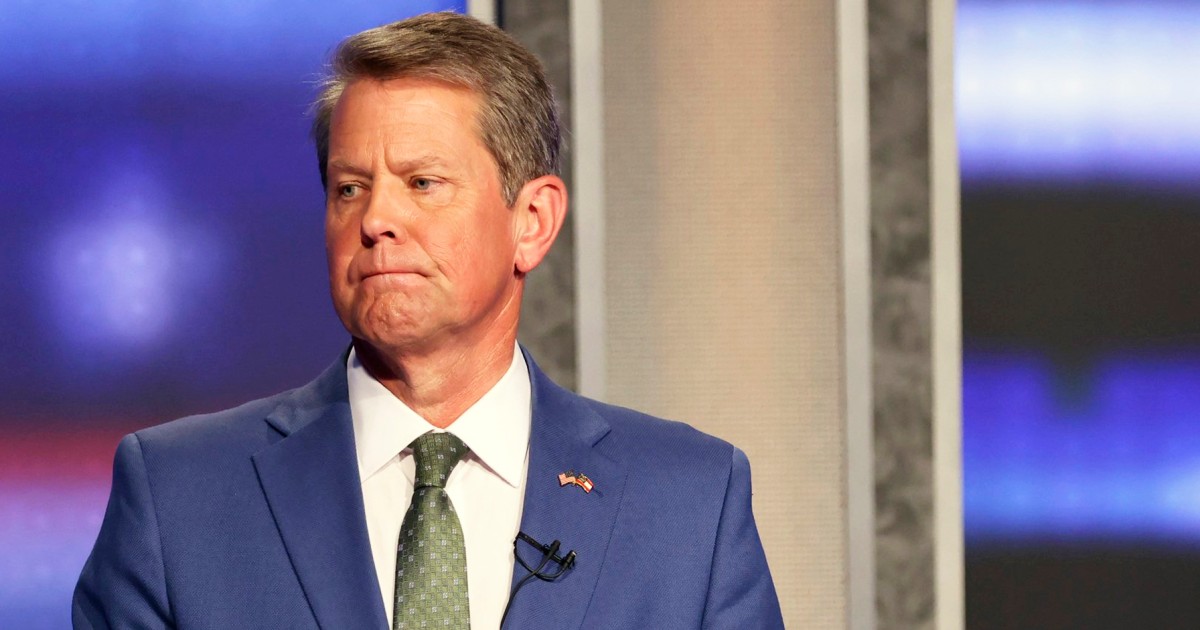SCOTT SIMON, HOST:
President Biden says voting rights are one of his priorities.
AYESHA RASCOE, HOST:
Next week, he hits the road to talk up legislation to protect those rights. But the question is, can he get those protections enacted into law?
SIMON: I’m Scott Simon.
RASCOE: I’m Ayesha Rascoe. And this is UP FIRST from NPR News.
(SOUNDBITE OF MUSIC)
SIMON: Countries turn to lockdowns again as COVID cases rise around the globe. We’ll get the details.
RASCOE: And we remember the late Sidney Poitier, the first Black performer to win an Oscar for best actor.
SIMON: He’s remembered for movies that include “In The Heat Of The Night” and “A Raisin In The Sun.”
(SOUNDBITE OF FILM, “A RAISIN IN THE SUN”)
SIDNEY POITIER: (As Walter Lee Younger) All I want is to make a future for this family. All I want is to be able to stand in front of my boy and tell him that he’ll be somebody in this world besides a servant and a chauffeur.
SIMON: So please stay with us. We’ve got the news you need to start your weekend.
(SOUNDBITE OF MUSIC)
SIMON: President Biden heads to Georgia next week.
RASCOE: It’s a state he won narrowly in 2020 and the state that’s ground zero in the fight over voting rights.
SIMON: The president says strengthening the protections of voting rights is imperative.
(SOUNDBITE OF ARCHIVED RECORDING)
PRESIDENT JOE BIDEN: Right now in state after state, new laws are being written not to protect the vote, but to deny it – not only to suppress the vote, but to subvert it.
RASCOE: How much of a battle will this be for the president?
SIMON: We’re going to turn to NPR White House correspondent Asma Khalid, who’s been traveling with President Biden and joins us from Las Vegas.
Asma, thanks so much for being with us.
ASMA KHALID, BYLINE: Happy to join you all.
SIMON: And the president has been and will be on the road. Where has he been? Where will he be?
KHALID: Well, the president was in Colorado yesterday. He toured the fire damage in Boulder County – met with families who had lost everything. I mean, really, Scott, some of these homes were nothing more than scraps of foundation in the ground. We’re here now in Las Vegas because the president is attending a memorial service for Harry Reid, who was, of course, the longtime Democratic leader in the Senate. It is worth pointing out that Reid was instrumental to changing some of the filibuster rules. And President Biden has been under pressure to support more changes to the filibuster. That is, logistically, what it would take to pass any sort of voting rights legislation in this current Congress.
SIMON: Next week, the president goes to Atlanta, and he plans to speak explicitly about voting rights there. What can we infer about what he’s going to say?
KHALID: The White House points out that Georgia was not only key in the civil rights movement, but recently it’s attracted a lot of national attention because of new restrictions that the Justice Department says have disenfranchised Black voters. Democrats in Congress want to pass legislation on voting rights. But these bills have stalled out, largely because of the filibuster. There are a lot of different measures in these bills – some things like making Election Day a holiday, securing mail-in voting.
Here’s how press secretary Jen Psaki described what President Biden will say next week.
(SOUNDBITE OF ARCHIVED RECORDING)
JEN PSAKI: He’ll talk about the specifics. And he’s very focused on people in the country understanding and knowing what is in this legislation. Why is it so important to pass these pieces of legislation? What is at risk? What needs to be protected?
KHALID: But the big question is, will this speech actually lead to concrete change? You know, activists want more than rhetoric. They have been saying this. And there are questions about whether the president’s speech will yet again raise expectations. But he won’t necessarily have the congressional support to back this up and make it into any sort of legislation.
SIMON: Asma, how big a priority can these bills be when the president is still facing, as we know, so many challenges around COVID?
KHALID: Well, COVID is still the key priority. The president told reporters yesterday that he believes the country is going to be able to control the pandemic. And even if the virus is here to stay in some ways, he said we’ll have more tools to contain it, so the new normal isn’t going to look like the current COVID surge. There is now a big push from the White House on testing. This week, we’re going to see some more details on the administration’s testing plans. On Friday, the government signed the first contract to buy those mass quantities of the free at-home test kits that we’ve been talking a lot about. And the president has said that testing will help keep COVID under control and do things like keep schools open, which is, of course, especially important with this highly contagious omicron variant, just given the chaos that some cities experienced this past week with school closures.
SIMON: NPR White House correspondent Asma Khalid – thanks so much.
KHALID: My pleasure.
RASCOE: You can find more politics and policy on the NPR Politics Podcast. Get it wherever you get your podcasts.
(SOUNDBITE OF MUSIC)
RASCOE: COVID cases are surging around the world.
: According to the World Health Organization, there’s been a 70% rise in cases over the course of a week.
RASCOE: And with that comes a series of new government restrictions in country after country.
: NPR global health correspondent Jason Beaubien joins us now. Jason, thanks so much for being with us.
JASON BEAUBIEN, BYLINE: Hey. It’s good to be here.
: We say restrictions. We’re talking about a lot of lockdowns, too, right? What do they look like?
BEAUBIEN: Yeah. In some places, full-on lockdowns are back. You know, in several cities in China, people have been ordered not to leave their homes at all for several days at a time. Hong Kong has basically banned all foreigners from entering the city. You know, even Hong Kong residents are not allowed to return to the city unless they quarantine for 21 days at their own expense at a government-approved hotel. And when cases are popping up in Hong Kong, the city has been locking down entire apartment complexes until everybody gets tested.
Then in Ontario, Canada, the province this week shut down schools, closed bars, gyms, museums. In South America, Peru’s imposing a new nightly curfew. They’re even, like, sending out soldiers to enforce it. So while this isn’t happening everywhere, you are seeing a tightening of COVID social measures in many places around the globe.
: Are there differences between the restrictions we’re seeing now and those that existed earlier in the pandemic?
BEAUBIEN: Yeah. The restrictions now have a very different goal from the early days of the pandemic. I was talking with Tom Hale. He runs a project called the Oxford COVID-19 Government Response Tracker. And apart from China and a few other places, he says the goal of these current COVID mandates, restrictions, it’s no longer to try to stop viral transmission entirely.
TOM HALE: Now they’re being used, really, to try to ease pressure off of health care systems during surges. So it’s so much the case in most European countries. It’s not like they think they’re – they want to eliminate COVID. It’s that they just want – trying to keep the hospitals from overflowing.
BEAUBIEN: And one other key thing now is that many of these new restrictions, they’re applied differently between the vaccinated and the unvaccinated. So in the Philippines, for instance, there’s this new order that the unvaccinated must stay at home except for attending to essential tasks. You know, in other places, quarantine requirements are shorter or maybe even nonexistent for people who are vaccinated. So that’s obviously a big difference from lockdowns that we saw earlier in the pandemic.
: Jason, Australia has some of the toughest anti-COVID restrictions in the world. And Novak Djokovic, the great tennis player, discovered this on Wednesday. He showed up to defend his title at the Australian Open in Melbourne and ended up in immigration detention.
BEAUBIEN: Yeah. Australia requires everyone who comes into the country to be vaccinated. All the details haven’t come out, but apparently Djokovic had been granted an exemption on health grounds. But then there was a lot of pushback from ordinary Australians. Australians have been going through incredibly strict lockdowns over the last two years. And now the new reality in most of Australia is you have to show that you’re fully vaccinated just to sit down in a cafe or eat in a restaurant, grab a drink at a bar or even go out and get a haircut.
: Jason, what’s your estimate as to how long some of these restrictions might last? As I don’t have to tell you, people are just getting pretty weary of them.
BEAUBIEN: Yeah, absolutely. I mean, there definitely is fatigue with all of this. But Tom Hale at Oxford, he says he expects that we’re going to be living with some form of lockdown, COVID restrictions for the foreseeable future.
: NPR global health correspondent Jason Beaubien, thanks so much.
BEAUBIEN: You’re welcome.
(SOUNDBITE OF MUSIC)
: And we’ll end by remembering Sidney Poitier, who died Thursday night at his home in Los Angeles. He was 94.
RASCOE: Poitier was a box office star and a trailblazer on the stage and screen. In 1964, he became the first Black performer to win the Oscar for best actor for his role in “Lilies Of The Field.”
: He was a performer who loved his work and created a string of characters who have withstood the test of time.
RASCOE: Aisha Harris, one of the hosts of NPR’s Pop Culture Happy Hour, has written about Poitier’s legacy and joins us now to talk about him. Welcome, Aisha.
AISHA HARRIS, BYLINE: Hi. Thank you for having me.
RASCOE: So by the time you became aware of Sidney Poitier, he was already a veteran, you know, making the rounds, getting lifetime achievement awards. How did you really become aware of his work?
HARRIS: Well, I think for a lot of people like myself – I’m a millennial – I came to know him as, like, a civil rights icon and a Hollywood legend who blazed a path for all of the Black actors who came after him. There’s also, of course, that really great moment at the 2002 Academy Awards where he was given the Lifetime Achievement Award. And that was the same evening that Denzel Washington became the second Black performer to win the best actor Oscar, and he did a really nice tribute to him there. But he was more than just this, like, icon. He was also a really, really great actor and performer when Black performers did not have the opportunities that they should have had.
RASCOE: Tell me about some of those all-time great Poitier performances that stand out.
HARRIS: Yeah. I mean, there are so many performances that I love – “In The Heat Of The Night,” where he’s playing a detective, Virgil Tibbs, “A Raisin In The Sun,” the Lorraine Hansberry play and the movie version where he plays Walter Lee Younger. But one of my favorites is probably “Paris Blues,” a movie where he stars alongside Diahann Carroll. And they play, you know, two people who meet in Paris and fall in love and flirts.
(SOUNDBITE OF FILM, “PARIS BLUES”)
DIAHANN CARROLL: (As Connie Lampson) What’s that?
POITIER: (As Eddie Cook) Notre Dame.
CARROLL: (As Connie Lampson) You didn’t even look.
POITIER: (As Eddie Cook) Well, I didn’t think they’d moved it.
CARROLL: (As Connie Lampson) I guess you pointed it out to lots of girls from here.
POITIER: (As Eddie Cook) One or two.
CARROLL: (As Connie Lampson) Mmm?
POITIER: (As Eddie Cook) Maybe three.
CARROLL: (As Connie Lampson) Well, it’s lovely.
POITIER: (As Eddie Cook) So are you. And I’ve never said that to any of them before.
HARRIS: He didn’t often get to play roles that were as three-dimensional as this, as well as being really, really sexy.
RASCOE: While he was a huge star in the 1960s and his reputation today is that of an activist and trailblazer, he was also, in his heyday, really criticized for some of his most famous roles. Can you tell us more about that?
HARRIS: Yeah. I mean, it’s interesting to note that his career was coinciding with the Black Power movement, and it was just right before the blaxploitation era, where there was this push against many of the types of roles that he was playing and Black people wanted, you know, stronger and more interesting characters. And so you have someone like Clifford Mason, the Black playwright and artist, writing a New York Times article very critical of him. And those feelings were obviously fair, but he also pushed back against constantly having to be that symbol of Black representation. And he wanted to talk about what his artistry was like. There’s a great moment in 1968 where he responded to some reporters at a press conference about this exact problem.
(SOUNDBITE OF ARCHIVED RECORDING)
POITIER: So you sit here and ask me such one-dimensional questions about a very tiny area of our lives. You ask me questions that fall continually within the Negroness of my life. I am artist, man, American, contemporary. I am an awful lot of things, so I wish you would pay me the respect due and not simply ask me about those things.
HARRIS: He wasn’t just the symbol of racial progress. He was an artist, and he was really good at what he did.
RASCOE: Aisha Harris of NPR’s Pop Culture Happy Hour, thanks for joining us.
HARRIS: Thank you.
(SOUNDBITE OF MUSIC)
SIMON: And that’s UP FIRST for Saturday, January 8, 2022. I’m Scott Simon.
RASCOE: And I’m Ayesha Rascoe. UP FIRST is back Monday with news to start your week. Follow us on social media. We’re at @upfirst on Twitter.
SIMON: And for more news, more interviews, books and music, you can find us on the radio.
RASCOE: Weekend Edition Saturday and Sunday mornings – find your NPR station at stations.npr.org.
(SOUNDBITE OF MUSIC)
Copyright © 2022 NPR. All rights reserved. Visit our website terms of use and permissions pages at www.npr.org for further information.
NPR transcripts are created on a rush deadline by Verb8tm, Inc., an NPR contractor, and produced using a proprietary transcription process developed with NPR. This text may not be in its final form and may be updated or revised in the future. Accuracy and availability may vary. The authoritative record of NPR’s programming is the audio record.









